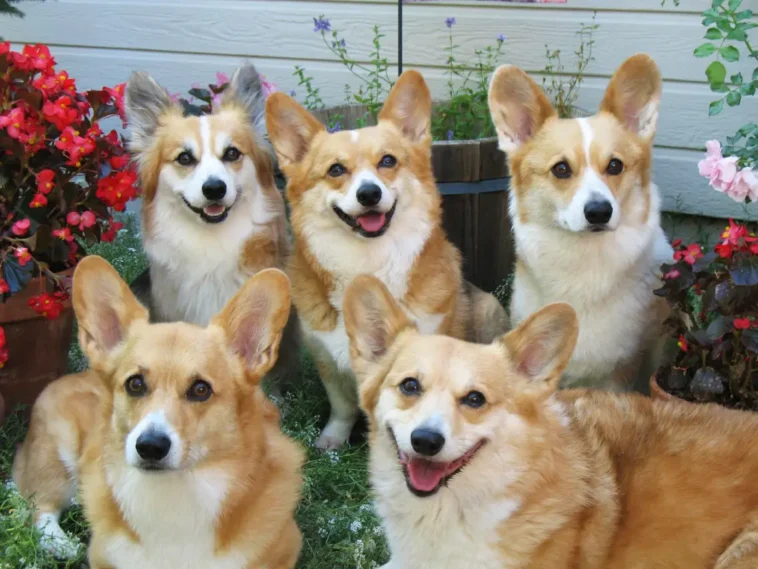Historically humans have used dogs to defend their sheep, cows and other animals while grazing; they have also found their usefulness in protecting houses in ancient times. In the modern world, roles have changed considerably. With the latest technology taking care of the security and protection of houses, reliance on dogs for these matters has considerably reduced.
Instead, dogs are now used as spirit animals, guides to help differently-abled people, and partners to keep you company and entertained. With the adoption or purchase of a dog, people often wonder if it is necessary to get a kennel. Sometimes getting a kennel for your dog is necessary, depending on the breed requirements for a kennel might vary. A wide range of single dog kennels is now available in the market.
Different dog breeds are now available for purchase and adoption. Some are purebred, while others are crossbred. The type and breed of dog that can help you improve the quality of your life varies depending on your activity level, physical fitness, and lifestyle. Getting a dog matching your lifestyle, activity level, and personality is important to ensure that both of you get a sense of belonging and happiness.
Best Breeds Suitable For A Kennel
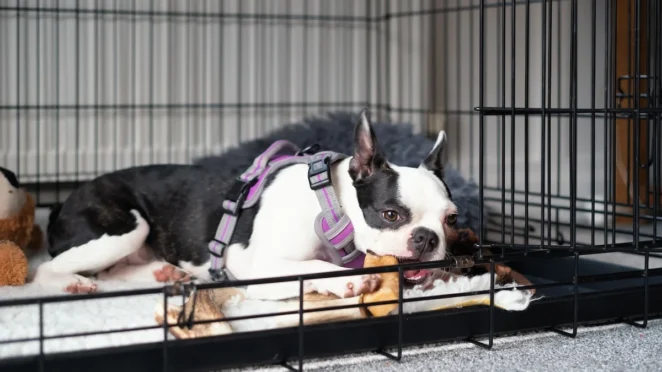
Dogs are social animals that thrive in social interaction with humans. But, some breeds are known for their adaptability to kennel conditions. Although it is not preferable to keep your dogs in a kennel, homeowners might need to resort to them in certain situations and due to area restrictions.
It is important to note that just like humans, different dog breeds have a unique temperament that determines the kind of kennel suitable for them.
Alaskan Malamute: These are child-friendly family dogs with great adaptability and resilience to survive outdoors. Their body is covered with a double fur coat, making them tolerant of strong colder climates. With proper training and care, they will easily adapt to kennel conditions. Due to their large size, they might overwhelm your children occasionally.
Temperament: Playful, kind, devoted, tenderhearted, dignified, and loyal
Siberian Husky: Similar to Alaskan Malamutes by all means. Siberian Huskies have a thick coat of fur that helps them do various activities in colder climates. They often exhibit a dramatic attitude making them popular among children. They can adapt to any cold living conditions if they are provided with proper training, regular exercise, and a well-managed shelter.
Temperament: Friendly, knowledgeable, extroverted, vigilant
German Shorthaired Pointer: Medium size pointing dogs widely used in the 19th century are the renowned ancestors of the German Shorthaired Pointer. They are known for their energy, endurance and strong foot, which provides great athletic abilities, speed and flexibility. They can live in a kennel or outdoors when given proper brain stimulation and exercise.
Temperament: Boisterous, intelligent, courageous, affectionate, receptive and cooperative
Border Collie: Border Collies are highly intelligent, active, medium-sized dogs. Their origin can be traced back to the landrace sheepdogs that once reigned in the British Isles. They prefer to be kept in the human company but are renowned for their adaptability to live in a kennel with regular exercise, mental stimulation, and restricted social interaction.
Temperament: Smart, Keen, Active, Responsive, Loyal, Alert, Athletic
Australian Cattle Dog: These dogs were developed in Australia. Due to their extreme intelligence, they were used for driving and managing cattle over long distances in rough terrain. These are best known for their working abilities and endurance.
Temperament: energetic, cautious, obedient, loyal, watchful, brave
Shiba Inu: Shiba Inu belongs to the group of hunting dogs widely used in Japan. They attained more popularity after a meme coin was introduced in their name. Although these are better suited for home environments, most dogs in the breed can adapt to kennel living if given enough mental and physical stimulation.
Temperament: charming, sharp, vigilant, fearless, confident, and trustworthy
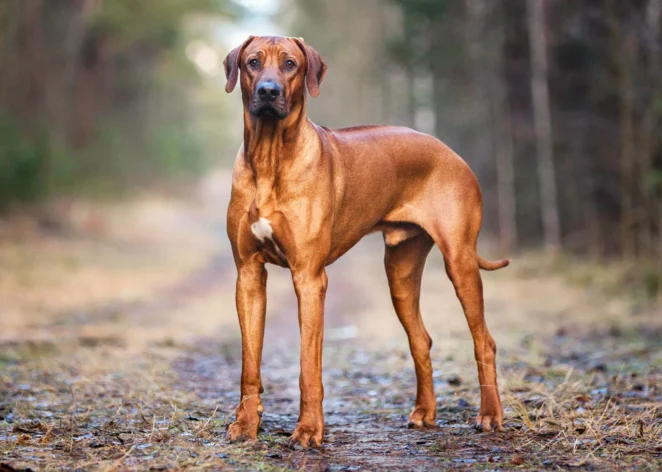
Rhodesian Ridgeback: These are mainly found in South Africa. They have a highly independent nature along with a high prey drive. Due to these peculiarities, they were used for hunting in the past. They require plenty of exercises and mental stimulation, but with proper kennel accommodations, they can adapt to outdoor living.
Temperament: Strong-willed, intelligent, dignified, mischievous, and sensitive
Rottweiler: This dog breed displays immense strength and is well known for its defensive mindset. They descend from the ancient Roman legions, making them a part of the mastiff family. These dogs are German in origin and were called Rottweiler Metzgerhund, meaning Rottweil butchers’ dogs. This name was popular because their duty mainly included herding livestock and pulling carts that contained butchered meat. Due to their muscular body, they have a different gait cycle that helps them be more agile.
Temperament: Steady, Self-assured, Devoted, Alert, Fearless, Good-natured, Obedient, Confident, Calm, Courageous
Bulldog: These are mastiff-type British breed dogs. They are often referred to as English Bulldog/ British Bulldog. These are medium-sized and might attain around 55 pounds in their prime. They can be well-behaved and adept at kenneling living conditions with proper training.
Temperament: Gregarious, Docile, Willful, Friendly
Despite the kind of dog or breed you decide to adopt or buy, it is important to remember that all dogs require proper exercise, socialization, mental stimulation and proper care to live a normal happy life. If you’re considering building a kennel, it can be reliable in providing a safe, comfortable and enriched environment for your dog.
Learn About The Breed
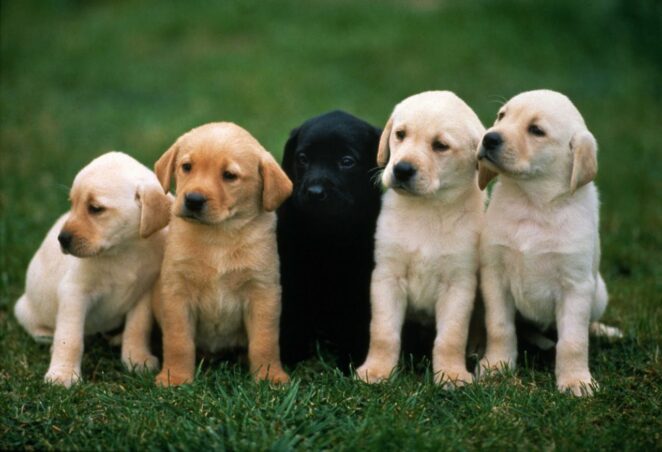
Once you choose the breed you are interested in, it is critical to learn all you can about it. Purchasing or adopting a puppy will help you get familiar with its temperament. It can help you understand and predict the grooming needs, food needs, and activity as it grows. This will help you plan ahead for the future and help your puppy nurture as it grows old.
Numerous websites and online resources can guide you through the various peculiarities and red flags of different breeds. Reading them and considering them before finalizing your decision will help you avoid any scrambles in the future.
Things To Consider While Choosing A Dog
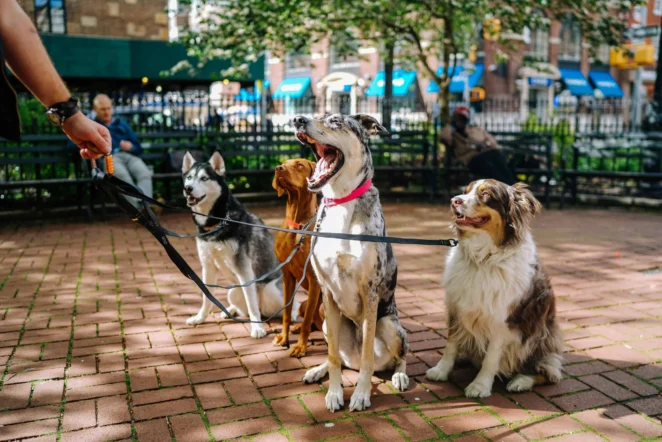
- Allergy/Health Issues: Some breeds are more prone to having frequent health issues. Researching these will help you understand dogs that might withstand the weather and environmental situations in your area.
- Size: The size of your house should be considered while determining the dog breed. In addition, the size of your dog should also be noted. These two factors will help you understand if your dog has enough play space and area to roam freely.
- Temperament: Every dog has its unique temperament. Choosing one that matches your personality, activity level and energy is important. This can help the dog get a sense of belonging and keep him company without boredom.
- Grooming Needs: Different dog breeds have different grooming needs. It is important to note it to ensure that you have time and budget to meet its needs. This might be an important factor as it often manages and addresses the various shedding issues.
Conclusion
It is important to note that there is no perfect dog breed; there is only the right breed and proper training. The right breed, combined with proper and regular training, can help your puppy become the best friend for you. That said, it might also be noteworthy to avoid the breed of dogs with a stubborn, independent attitude as they have unpredictable temperaments. These take a lot of work to manage and train. So these factors should also be considered before making up your mind.



